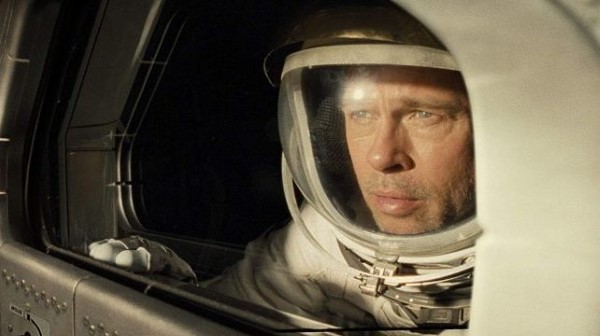
Ad Astra (Latin for “to the stars”) is a very ambitious and well-made science-fiction film set in a near and recognizable future, where earth’s governments have set up space bases on the moon and mars. Known for his calm under pressure, and for being the son of an heroic astronaut who led the first manned voyages to explore our outer solar system, Major Roy McBride (Pitt) followed in his father’s footsteps in achieving astronautical accolades. Thirty years after his father’s failed final mission to Neptune, the Lima Project, Roy is tapped for a top-secret mission to Mars to try to stop earth-threatening energy surges that seem to be originating from the Lima Project’s last known location.
This is director James Gray’s first foray into science fiction, his previous films focusing mostly on different historical periods. Preceding Ad Astra, he directed the sprawling The Lost City of Z, a muddy and meandering tale of British explorers’ ambitions being stoked and stomped out by the untamable Amazon forest. Yet, Ad Astra has more in common with the likes of Conrad’s Heart of Darkness than that jungle tale. It’s Apocalypse NASA with Pitt’s acting spectrum of cold, cool or crazy suiting the role perfectly as the stand-in for the jaded Captain Willard. An aging and bearded Tommy Lee Jones is the gone-native, lost his marbles Colonel Kurtz character, who, being the sole living person farthest away from the earth (at nearly 3 billion miles), would be, according to Karl Pilkington, “the loneliest man ever . . . in the world.”
Gray himself said he wanted to make “the most realistic depiction of space travel that’s been put in a movie,” and using the framework of Conrad’s classic tale for a sci-fi movie, much as Coppola did with Vietnam, he came very close to achieving that goal. Though still, something may keep it from reaching the acclaim of Apocalypse Now, but that something is intangible. There’s an over-reliance on voice-over narration, sure, but it’s well-integrated into the plot device of McBride’s constant psych-evaluations. There’s something off about Roy’s escape from Mars, but it’s so beautifully shot by Hoyt van Hoytema (whose name and cinematography credits are awesome) that you forget to ask “why?” And the film often jumps genres—from space epic to action thriller to horror show—but the score and sound design are so excellent, often muted to echo the silence of space, that it never feels hokey or disjointed. What I expected was a pretty space movie with a cool car chase on the moon. What I got was that and then some, Heart of Darkness in space. And what’s darker than space?













